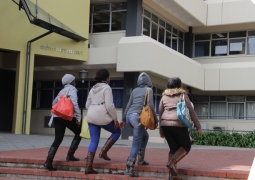
The number of students entering universities in South Africa is three times higher than those entering colleges and the post-school system is not well designed to meet the skills development needs, the Portfolio Committee on Higher Education and Training heard on Thursday.
The Portfolio Committee is attending the two-day National Skills Conference in Pretoria, organised by the Department of Higher Education and Training (DHET) and the National Skills Authority (NSA).
The multisectoral event on the theme “Skills development for an integrated and differentiated Post-School Education and Training system – past, present and future” is hosting stakeholders from business, labour, community-based and civic organisations, government departments and entities, the Sector Education and Training Authority sector, and training providers among others.
The Chairperson of the NSA, Ms Lulama Nare, told the conference that the National Development Plan expects the post-school system to supply the skills needed in all sectors. “We must thank the Minister for allowing a representative stakeholder meeting such as this one with the aim of weighing the policy imperatives as outlined (in the 2014 White Paper) and to chart a way forward that will fast track the realisation of our skills development objectives,” Ms Nare said.
The Chairperson of the Portfolio Committee, Ms Connie September, said skills development is a critical area for the Department. She said interventions in this areas are welcomed as successful economies rely on a skilled labour force.
The President of the Congress of South African Trade Unions (Cosatu), Mr Sidumo Dlamini, said Cosatu was interested in a longer-term plan on skills development in the country. “No more short-termism now. We demand an increase in the skills levy from 1% to 4%. We must ensure changes on the percentage differences between mandatory and discretionary grants. Employers should report on their total spend on education and training not only on the one percent, and this should be aligned to the BEE Act,” Mr Dlamini said.
The Director-General of the Department, Mr Gwebs Qonde, said growing the economy remains a challenge. “The system requires a collaborative effort from government and business. This is a timely platform for reflection and engagement by all, without being defensive. The success or failure of all our efforts in skills developments is in our hands,” Mr Qonde said.
The Deputy President Mr Cyril Ramaphosa is expected to give a keynote address tomorrow.
Sibongile Maputi
23 March 2017

